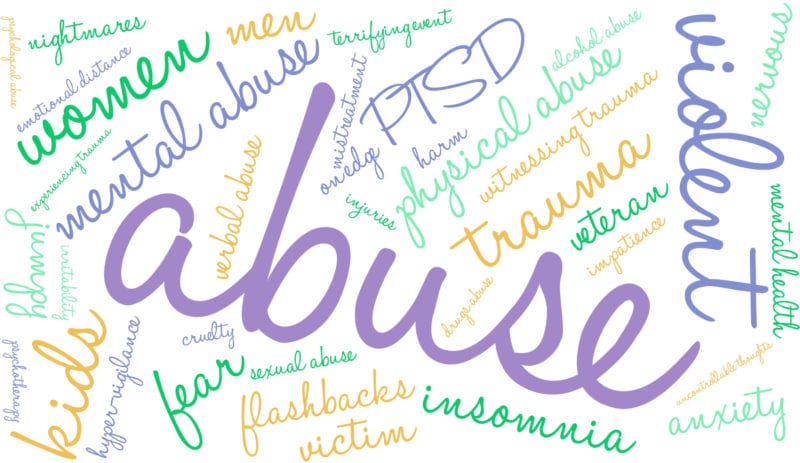Certain factors increase the likelihood of re-victimization.
Due to the advent of the #MeToo movement and two new documentaries about famous people being accused of sexually abusing children (Michael Jackson and R. Kelly), the issue of childhood sexual abuse has become the focus of more attention than it has been for years. In the past, numerous studies have documented the fact that child sexual abuse has serious and lasting psychological consequences, including: depression, suicidal tendencies, sexual dysfunction, self-mutilation, chronic anxiety, post-traumatic stress disorder, dissociation, memory impairment and somatization. Impairment in interpersonal functioning has also been documented (Classen, 2001).
But there is another consequence of childhood sexual abuse that hasn’t been given much attention. This is the fact that those who were sexually abused in childhood are at a far greater risk of being sexually re-victimized in adulthood than those who didn’t suffer from such abuse. This may seem to be a shocking statement for many people but sadly, it is true. Research over the past decade has consistently shown that those who were sexually victimized as a child or adolescent are far more likely to be sexually assaulted as an adult than others. One recent study found that former victims of CSA are thirty-five times more likely to be sexually assaulted than non-victims. (Tapia, 2014).
Although studies have documented a link between childhood sexual abuse and adult sexual re-victimization there has been little attempt to advance theoretical understanding of its causes, the link between childhood sexual victimization and adult re-victimization, or the process by which re-victimization occurs.
Why are victims of child sexual abuse more at risk of being re-victimized? The following information, excerpted from my latest book, I’m Saying No!” Standing Up Against Sexual Assault, Sexual Harassment and Sexual Pressure, provides some important answers:
· Most former victims of child sexual abuse experience a lot of shame and self-blame. These two factors are by far the most damaging effects of CSA and increase the likelihood of re-victimization more than does any other effect. This is partly true because victims of sexual abuse develop certain behavioral problems, such as alcohol abuse, that make re-victimization more likely. Victimized women, in particular, believe that they have brought any abuse they’ve experienced on themselves and that they do not deserve to be treated with respect or loved unconditionally (Filipas & Ullman, 2006). Furthermore, shame is related to an avoidant coping style, as the person who is shame-prone will be motivated to avoid thoughts and situations that elicit this painful emotional state. A victim who is experiencing avoidant symptoms may be prone to making inaccurate or uninformed decisions regarding potential danger because of the fact that the trauma has been denied, minimized, or otherwise not fully integrated (Noll et al., 2003). The re-experiencing symptoms can lead to a repetition compulsion where the failure to accommodate to a traumatic experience may lead to a subconscious drive to reenact the experience—an attempt to achieve a sense of mastery over the original trauma (Van der Kolk, 1989).
They tend to have alcohol and drug problems. Former victims often numb their re-experiencing symptoms with alcohol and drug use, which can serve to impair judgment and defensive strategies (Noll et al, 2003). According to research, former victims of child sexual abuse are about four times more likely to develop symptoms of drug abuse, and adolescents who have been sexually abused were two to three times more likely to have alcohol use/dependence problems than non-victims (RAINN). CSA has also been identified as a significant precursor to alcohol abuse, as well as to co-occurring alcohol use (Oshri, Tubman & Burnette, 2012).
Certain factors increase the likelihood of re-victimization. Factors such as the severity of the abuse, the use of force and threats, whether there was penetration, the duration of the abuse, and closeness of the relationship between victim and offender are associated with higher risk of re-victimization (Classen, 2005).
· Certain kinds of abusive men target women (and men) whom they perceive as vulnerable.
· Former victims tend to have sexual behavior problems and oversexualized behavior. Children who have been sexually abused have over three times as many sexual behavior problems as children who have not been abused (d21.org).
· They tend to have low self-esteem and poor body image. Obesity and eating disorders are more common in women who have a history of child sexual abuse. (d21.org). Girls and women who have a poor body image are more likely to feel complimented by male attention and are more vulnerable to men taking advantage of their need for attention.
· They may feel powerless because the abuser has repeatedly violated their body and acted against their will through coercion and manipulation. When someone attempts to sexually violate them as an adult, they may feel helpless and powerless to defend themselves.
· They don’t tend to respect their bodies. They may feel stigmatized, suffer from a great deal of shame and feel like they are already “damaged goods,” and there is no point in protecting their reputation or their body.
article continues after advertisement
· They don’t tend to be attuned to warning signs that a person may be a sexual perpetrator.
· They don’t tend to have good boundaries.
Former victims of child sexual abuse need to acknowledge just how much this trauma influences them, their ability to protect themselves from further sexual violations, and even their motivation to do so. Former victims are often unable to stand up for themselves and adequately protect themselves from the dangers all around them. This is because the effects of child sexual abuse are devastating to a young person’s self-esteem, self-confidence, and self-concept. Furthermore, the trauma can make it difficult for former victims to believe they deserve to be protected and respected due to the amount of shame and self-blame they experience.
Shame is such a major factor in sexual re-victimization that it warrants additional focus. I have written a follow-up article in which I discuss the damage shame can do to a former victim of child sexual abuse, as well as offer ways in which to heal this shame. Specifically, self-compassion is a key component to empowerment as well as being the antidote to shame. Learning to provide themselves self-compassion will help former victims of child sexual abuse to acknowledge the damage they have already experienced. Once they have done this, once they have come out of denial about their pain and suffering, they will be on their way to true empowerment.
References
Classen, C.C., Palesh, O. G., & Aggarwal, R. (2005). Sexual re-victimization. A review of empirical literature. Trauma, Violence, and Abuse, 4 (6), 103-129.
Tapin. Survivors of Child Sexual Abuse and Predictors of Adult Re-Victimization in the United States. International Journal of Clinical Justice Sciences, Vol 9 Issue I. January-June 2014
Oshri, A., Tubman, J.G., & Burnette, M.L. (2012). Childhood Maltreatment histories, alcohol, and other drug use synptoms, and sexual risk behavior in a treatment sample of adolescents. American Journal of Public Health, 102 (2), 250-257.




Leave A Comment